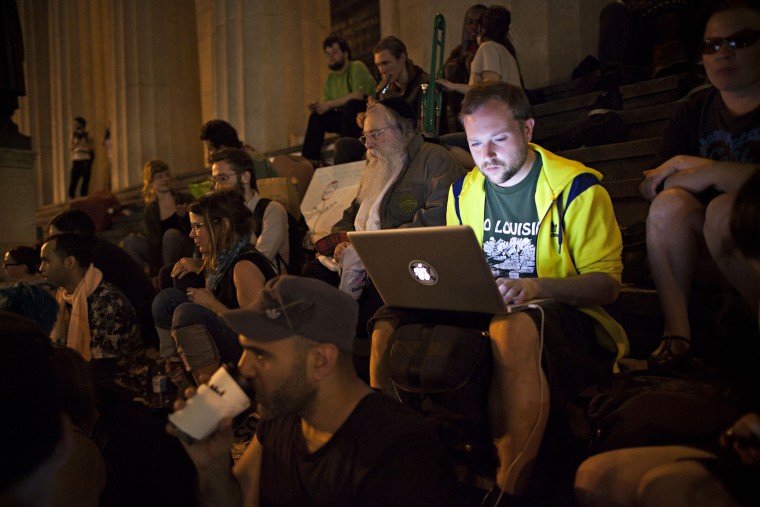Three months ago, a federal appeals court struck down the Federal Communications Commission's "net neutrality" policy -- for the second time. Federal officials could, in theory, guarantee that all online content will be treated equally, but the court said the FCC would need a different regulatory course to get there.
Soon after, there was some talk about going the legislative route. Democrats unveiled the "Open Internet Preservation Act," which picked up 31 co-sponsors in the House and 6 in the Senate, and which would have empowered the FCC to require telecommunications companies to treat all websites equally. Proponents quickly realized overcoming Republican opposition would be nearly impossible -- GOP hostility towards net neutrality has been unyielding and inflexible.
And so the FCC, after having already struck out a couple of times, has apparently come up with a brand new approach, which bears little resemblance to the policy officials had fought for prior to January's court ruling.
The Federal Communications Commission said on Wednesday that it would propose new rules that allow companies like Disney, Google or Netflix to pay Internet service providers like Comcast and Verizon for special, faster lanes to send video and other content to their customers. The proposed changes would affect what is known as net neutrality -- the idea that no providers of legal Internet content should face discrimination in providing offerings to consumers, and that users should have equal access to see any legal content they choose. The proposal comes three months after a federal appeals court struck down, for the second time, agency rules intended to guarantee a free and open Internet.
FCC Chairman Tom Wheeler told the New York Times that it's "flat out wrong" to say that this new plan guts net neutrality. Rather, he added, this approach is intended to help the policy overcome the federal courts' objections.
But for proponents of net neutrality, this is not only deeply discouraging; it's arguably a moment of crisis.
From the FCC's perspective, the integrity of net neutrality would still be in place in large part because service providers would not be able to punish online content the ISPs don't favor.
This has long been a point of concern. Without net neutrality, the fear has been that access to online content would be broken into two tiers. Your service provider would, on the one hand, have a package of preferred websites, which customers could access quickly and easily. Then there would also, however, be sites with unfavorable status -- when customers tried to access sites the service provider doesn't like for whatever reason, the content would be deliberately slower and/or more difficult.
If the reports are accurate, this latter scenario still won't be allowed under the new FCC approach. Service providers couldn't deliberately make it more difficult to access some online content based on the company's business deals.
But we're still looking at the likelihood of two tiers -- a "fast lane" for the ISP's preferred content and a regular ol' lane for all other content.
"This is not net neutrality," Michael Weinberg, vice president of Public Knowledge, told Vox. "The FCC is inviting ISPs to pick winners and losers online. This standard allows ISPs to impose a new price of entry for innovation on the internet."
The future of the policy is not yet set in stone, and the details of the proposed rules won't be released to the public for another three weeks. That said, it would appear the future of net neutrality is in great jeopardy.
